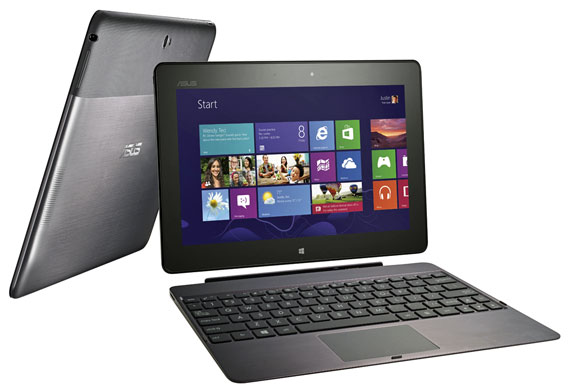
Asus may have a hand in producing Google’s refreshed Nexus 10 Android tablet, but recent remarks from the company’s chief executive reveal that the Taiwanese company is turning up its nose at the prospect of making another Windows RT-powered tablet entirely.
“It’s not only our opinion,” CEO Jerry Shen remarked to the Wall Street Journal. “The industry sentiment is also that Windows RT has not been successful.”
And how many RT tablet models did Asus need to make before it came to this conclusion? Just one: the VivoTab RT (three models if you include its cellular variants).
Now Asus may not be the most prominent of Microsoft’s RT hardware partners, but in an age where a surprising number of people are buying tablets in lieu of more traditional PCs the snub is a prominent one. The company would apparently rather continue making full-blown Windows 8 tablets and notebooks rather than dump resources into a new RT tablet and hoping people into buying them. And can you blame them? Even Microsoft’s Surface — arguably the Windows RT flagship, mind you — is a dog. Who could forget that Microsoft had to write down a whopping $900 million of Surface RT inventory because people just didn’t buy them.
Shen is absolutely right though: Asus is certainly not alone in panning RT as a platform worth building on. HP and Toshiba both had RT devices in development but axed them prior they ever hit the market. HTC reportedly canned a 12-inch Windows RT tablet, despite the fact it’s arguably too invested in Android. Even Nokia, Microsoft’s Windows Phone darling, is said to have dumped Windows RT in favor of full-on Windows 8 for its first (and oft-rumored) tablet in years.
Naturally, not every company has been so quick to distance itself from Windows RT’s controversial embrace. NVIDIA CEO Jen-Hsun Huang confirmed to CNET yesterday that the chipmaker is working closely with Microsoft on a second generation Surface RT tablet, and hopes that the devices will be a “big success”. Of course, that very same day Huang also indirectly pointed to the original Surface as one of the reasons the company’s quarterly Tegra sales revenue is expected to be so wimpy — to hear him say it, NVIDIA doesn’t “expect as much returns on that investment as we originally hoped”. Bummer.
Despite loud claims to the contrary, Microsoft isn’t going to let Windows RT go down without a fight. The problem is that even Microsoft seems unsure of which direction to take here — larger tablets like the Surface RT and its cousins haven’t managed to resonate with consumers. What about working with OEMs to create some smaller, cheaper RT tablets that could theoretically compete with devices like the iPad mini? It’s an intriguing thought… until you remember Microsoft relaxed its own standards to let device manufacturers load up full versions of Windows 8 on a generation of new, smaller tablets. Where is RT supposed to fit in now? That’s the $64,000 question, and plenty of OEMs don’t even want to try answering it anymore.